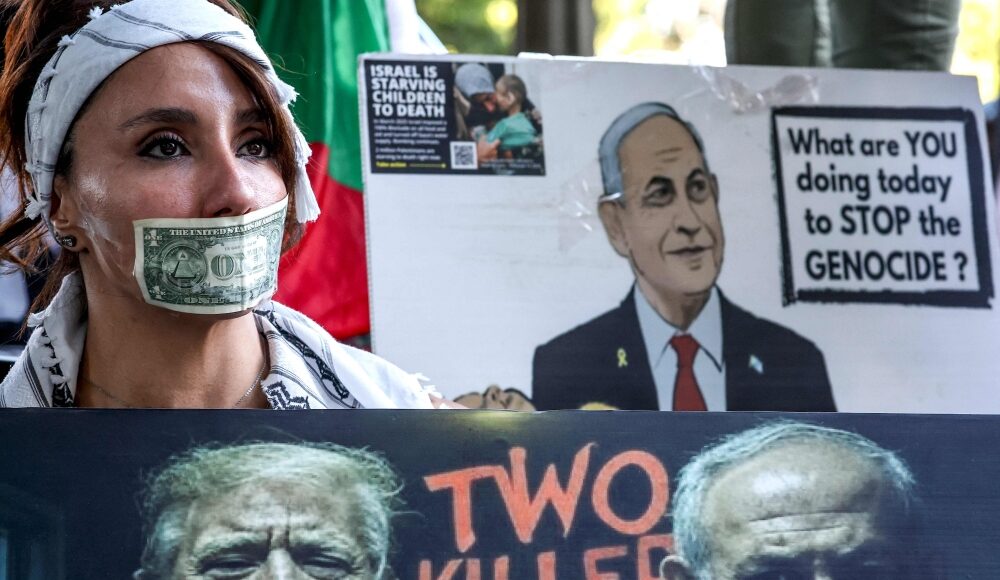JUNE 22 — Today marks the United States’ entry into war against Iran after two weeks of fighting between Israel and the latter. Donald Trump has floated the idea of using the United States’ proprietary bunker-busting bomb to destroy Iran’s underground uranium-enrichment facilities at Fordow.
Saturday’s strike dispelled any remaining doubts about whether Trump, who had always portrayed himself as an anti-war president, would employ such a drastic move and risk dragging the US into another “forever war”.
With its back against the wall, Iran now faces only a handful of options in response to the latest development. For some time, Iran has warned against US involvement in its conflict with Israel or risked a regional conflagration. However, it has few cards to play following the assassination of many top brass military personnel on June 13 and the debilitating attack on its missile infrastructure by Israel.
While Iran is believed to have massive stockpiles of ballistic missiles, a protracted war of attrition is unlikely to end in the regime’s favour — especially when its proxies such as Hezbollah in Lebanon, the Houthis in Yemen, and Hamas in Gaza have been severely weakened, rendering it alone in the region.
Nevertheless, Iran still wields some leverage against the United States; in particular, it sits in a strategic location to enact a blockade on the Strait of Hormuz, which would result in soaring oil prices. Roughly 20 per cent of the world’s petroleum passes through this narrow strait.
Countries like China, India and Japan, which are reliant on the oil flowing out of the Persian Gulf, are particularly sensitive to such a price shock. Similarly, the US is not immune to the spike in oil prices, as it can stoke domestic inflation.
A protester with a US dollar note taped over her mouth participates in a demonstration in support of Iran and Palestinians in Gaza, and against the actions of Israel and the United States in Sydney on June 22, 2025. — AFP pic
On the other hand, sealing off the strait would almost certainly alienate Iran from whatever diplomatic goodwill remains. This would bolster not only the United States’ but Israel’s justification that Iran indeed poses a threat to the region and should be pressured into full surrender. However, when push comes to shove, Iran may still do the unthinkable to put the United States under international pressure to scale back its attack.
Iran may also opt for a more calibrated retaliation against the United States by attacking its military installations in the region. A limited attack may demonstrate to international audiences that Iran does not yield to foreign aggression, which in turn signals to Israel that it retains sufficient capability and capacity to continue the fight. But every act of retaliation risks provoking further escalation with severe casualties, as Trump warned, “any retaliation will be met with force far greater than what was witnessed tonight”.
That brings us to Iran’s final, starkest option: capitulation and de-escalation to preserve the survival of its current regime. Faced with the very real prospect of regime collapse, the Ayatollah regime could forswear its nuclear enrichment programme in exchange for a ceasefire.
While this would leave hardliners furious and undermine Iran’s narrative of resistance, it might be the only way to preserve the Islamic Republic. If the bunker-busting bomb dropped by the US has indeed obliterated the facilities and set back the development of its nuclear weapons for years, further defiance would serve no purpose in the interest of regime survival.
Iran is at a crossroads now. Its Supreme Leader, Ayatollah Ali Khamenei, is allegedly sheltering in a bunker and has picked his successor in the event of his assassination. Its proxies are weakened.
Although the current Israeli attack has also riled up deep-seated patriotism among Iranians, the regime remains deeply unpopular at home. Tehran may yet attempt a Hail Mary to slay the Goliath that is the US — but the odds are stacked against it. Its next move will no doubt shape the future of Iran.
* This is the personal opinion of the writer or publication and does not necessarily represent the views of Malay Mail.





